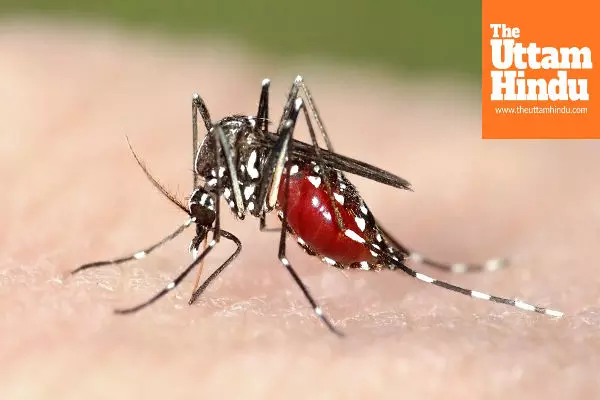ONE WEEK OF SPECIAL HEALTH CAMPAIGN: 2.47L PATIENTS TREATED, MALARIA CONTAINED TO JUST 5 CASES ACROSS 2303 FLOOD-AFFECTED VILLAGES

CHANDIGARH (The Uttam Hindu): The one week of ongoing Punjab Government’s massive ‘Special Health Campaign’ in flood-affected areas has shown remarkable results with medical teams established health camps across all 2303 targeted villages, conducting as many as 2,47,958 OPD consultations, said Health and Family Welfare Minister Dr Balbir Singh here on Monday.
This massive effort enabled prompt treatment of 31,717 fever cases, 7,832 diarrhoea cases, 36,119 skin infections and 16,884 eye infections, preventing these conditions from escalating into larger outbreaks.
Notably, Chief Minister Bhagwant Singh led Punjab Government had orders a massive mobilization of the state’s entire medical fraternity, directing the deployment of all available resources—including government doctors, private volunteers, Ayurveda medical officers, and MBBS interns—to spearhead a ‘Special Health Campaign’ in 2303 flood-affected villages on September 14.
Releasing the cumulative data from September 14 till now, the Health Minister stated that the strategic focus on preemptive action has yielded significant results, with only five malaria cases detected despite extensive door-to-door screening of over 7 lakh households by the army of over 20,000 ASHA workers. The health teams have also distributed 2.27 lakh essential health kits, he said.
“These numbers represent a successful containment of health disaster. Where major outbreaks were anticipated, our preemptive strategy has created a strong health shield around our communities,” said Dr Balbir Singh. “The minimal number of malaria cases and effective management of other ailments demonstrate that our three-pronged approach is working effectively on ground.”
Similarly, intensive vector-control drives have covered 6.22 lakh households for mosquito breeding, finding and destroying breeding sites in 11,582 houses. As a critical preventive measure, preemptive larvicide was sprayed at 1.43 lakh houses, and extensive fumigation was carried out in all the flood-affected villages to break the disease transmission cycle.
